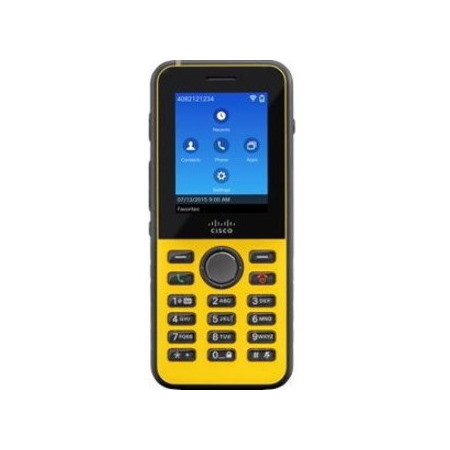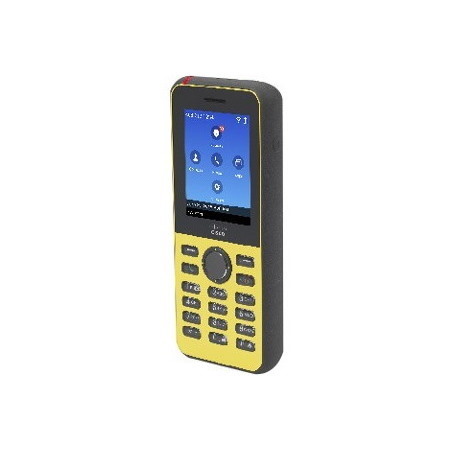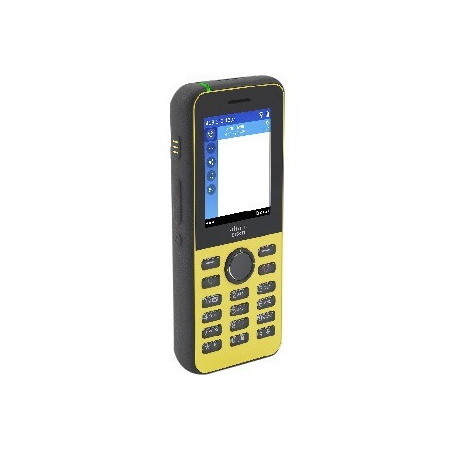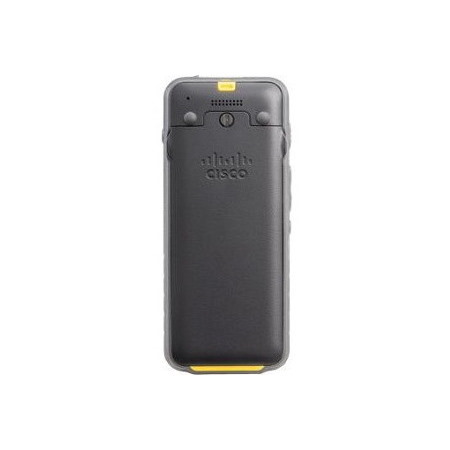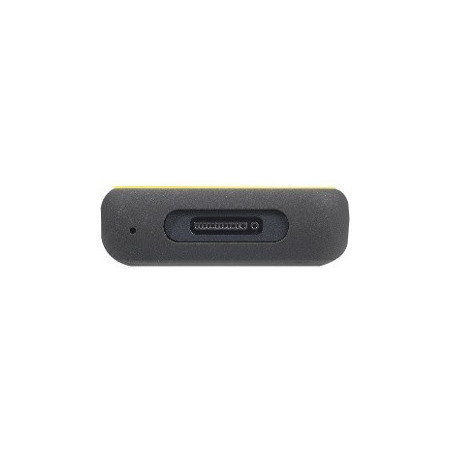The 8821-EX is specifically designed for workers whose roles are in more rigorous, industrial settings. Examples of ideal use cases include operations and engineering staff in manufacturing, customer service representatives in retail, service staff such as maids in hospitality, and workers on rigs in the oil and chemical industries.
The 8821-EX builds upon all of the features offered by the Cisco Wireless IP Phone 8821 and adds nonsparking support for temporary exposure within potentially combustible environments. It is certified for CSA Class I Division 2, as well as (pending) ATEX Zone 2 Group IIC. ATEX Zone 2 is defined as an area in which an explosive gas atmosphere is not likely to occur in normal operation and, if it does occur, is likely to do so only infrequently and will exist for a short period only (for example, less than 10 hours per year). Similarly, CSA Class I is a location where a quantity of flammable gas or vapor sufficient to produce an explosive or ignitable mixture may be present in the air. Division 2 is a location where a classified hazard does not normally exist but is possible under abnormal conditions. Zone 2 is an area in which an explosive gas atmosphere does not normally exist.
While the 8821-EX is sleek and lightweight, the design is hardened for users. It is Ingress Protection standard (IP67) rated for ordinary locations and is sealed for protection against dust, splash, and water. In addition, for use in hazardous locations, the phone has been certified to IP54. The device is also MIL-STD-810G tested, with a dozen drops onto concrete from heights of up to 5 feet (1.5m), to help ensure shock resistance and avoid breakage if dropped.
The 8821-EX enhances security and simplifies configuration management. Stronger encryption is supported for certificate management and policies enablement with the EX model's support of Secure Hash Algorithm 2 (SHA-2). Simple Certificate Enrollment Protocol (SCEP) eases IT administration by enabling automatic certificate management on the device.
End users will enjoy a larger, higher-resolution color display and a user experience that is common with Cisco IP Phone 8800 Series desk phones. In addition, roaming between access points within the campus will support more seamless voice communications with the 8821-EX's support of Fast Transition (802.11r). This protocol was specifically designed for mobile Voice over IP (VoIP) communications devices within Wi-Fi networks. Bluetooth is supported for the user's choice of third-party wireless headsets and adds freedom by untethering the user from the handset.
The 8821-EX supports Cisco and third-party XML applications such as push-to-talk.
- General Information
- Manufacturer
- Cisco Systems, Inc
- Manufacturer Website Address
- http://www.cisco.com
- Brand Name
- Cisco
- Product Series
- 8800
- Product Type
- Handset
- Warranty
- Limited Warranty
- 1 Year
- Technical Information
- Connectivity Technology
- Cordless
- Wireless Technology
- Wi-Fi
- Bluetooth
- Features
- Rugged
- Speakerphone
- Push-to-talk
- Rechargeable Battery
- Volume Control
- Vibrator
- Auto-answer
- Key Lock
- Call Forwarding
- Call Park
- Call Timer
- Call Pick-up
- Call Waiting
- Caller ID
- Conference Call
- Call Transfer
- Hold
- Silent Mode
- Voice Mail
- Redial
- Message Waiting
- Music on Hold
- Mute
- Time & Date Stamping
- (BLF) Busy Lamp Field
- Intercom
- Speed Dial
- Network & Communication
- Frequency Range
- 2.41 GHz to 5.83 GHz
- Display & Graphics
- Screen Size
- 2.4"
- Screen Type
- Color LCD
- Screen Resolution
- 240 x 320
- Interfaces/Ports
- USB
- Yes
- Headphone
- Yes
- Controls/Indicators
- Buttons & Keys
- On/Off
- Volume Control
- Soft Key
- Mute Button
- Speaker
- Navigation Key
- Numeric Keypad
- Battery Information
- Battery Talk Time
- 11.50 Hour
- Battery Standby Time
- 145 Hour
- Physical Characteristics
- Height
- 5.2"
- Width
- 2.2"
- Depth
- 0.7"
- Weight (Approximate)
- 5.75 oz
- Miscellaneous
- Package Contents
- Wireless IP Phone 8821-EX World mode
- Battery
- Power Cord
- Power Adapter
- Country Clip
- Certifications & Standards
- Safety:
- UL 60950-1
- CAN/CSA 60950-1
- EN 60950-1
- IEC 60950-1
- AS/NZS 60950.1
- IEC 60529 (IP 67)
-
ATEX Zone 2 Group IIC (pending)
- US/Canada CSA Class I Division 2
- US/Canada CSA Class I Zone 2
- ANSI/ISA 12.12.01 Class I Division 2, Groups A, B, C, and D
- CAN/CSA C22.2 No.213
- EN 60079-0
- EN 60079-7
- 47 CFR Part 15 Class B
- ICES-003 Class B
- EN 55022 Class B
- AS/NZS CISPR 22 Class B
- CISPR 22 Class B
- VCCI Class B
- EN 61000-3-2
- EN 61000-3-3
- KN 22 Class B
- EN 55024
- EN 50082-1
- EN 61000-6-1
- EN 61000-6-3
- EN 300 386
- EN 60601-1-2
- KN Immunity Series
- FCC Part 68 (CFR) (HAC)
- NZ PTC 220 DR
- AS/ACIF S004 and AS/ACIF S040 (Australia)
- TIA 810-B and TIA 920-A
- Canada-CS-03-HAC
- Canada: RSS-210
- Japan: ARIB STD-T66 (2.4 GHz), ARIB STD-T70, and T71 (4.9/5 GHz)
- ETSI: EN 300.328 (2.4 GHz) and EN 301.893 (5 GHz)
- Australia and New Zealand: AS/NZS 4268
- Singapore: IDA TS SRD
- Hong Kong: HKTA1039
-
OET-65C (01-01)
- ANSI C95.1 (91)
- RSS-102
- ACA Radio Communications (Electromagnetic Radiation - Human Exposure) Standard 2003
- EN 50360
- EN 301 489-1
- EN 301 489-1

